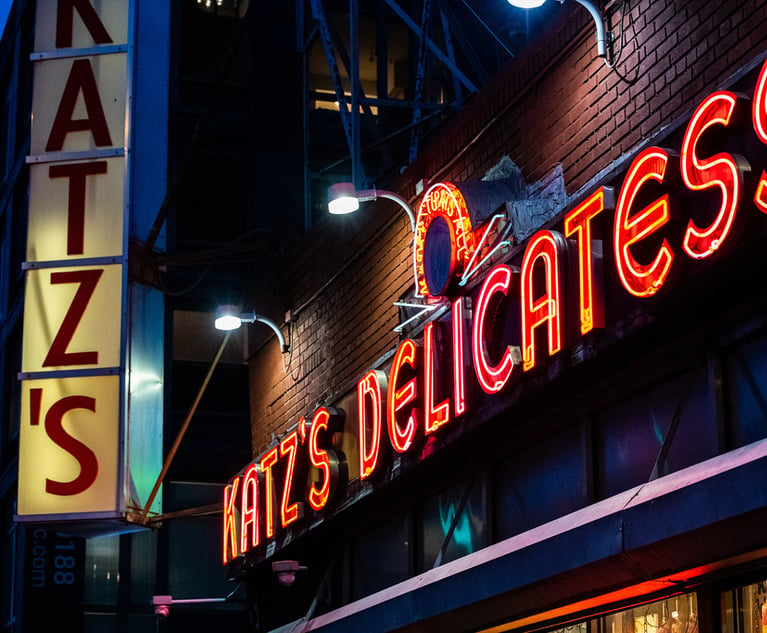Presaging Possible Legislative Debate, Dutchess County DA Opposes Bail Reform
Dutchess County District Attorney William Grady considers recent policy shifts moving away from requesting monetary bail in misdemeanor and violations cases to be “somewhat misguided.”
January 11, 2018 at 06:19 PM
6 minute read

Dutchess County District Attorney William Grady considers recent policy shifts away from requesting monetary bail in misdemeanor and violations cases “somewhat misguided,” and prosecutors in his upstate county will not be joining their counterparts in Manhattan and Brooklyn in such a shift, he told the Law Journal this week.
“I'm not about to endorse the plan put forward by [Manhattan] DA [Cyrus] Vance [and Brooklyn DA Eric Gonzalez], because I think we [prosecutors] must be able to argue for bail wherever we feel it's appropriate, in each and every case,” Grady said in an interview prompted by reports on Tuesday of both Vance's policy change and a civil rights-based lawsuit launched against Dutchess County over its bail practices.
Added Grady, “It is somewhat misguided to assume that you can come up with this rule and a list of exceptions to the rule.
“Each case is different, of course,” he continued, “and there are any number of extenuating circumstances that must justify the court setting the bail that would not be contained in the so-called rule and its list of exceptions.” He also said, “There are other ways to address the issue [of cash bail leading to the poor being disproportionately kept behind bars], other than an across-the-board mandate that bail cannot be set in all misdemeanor cases.”
Among the alternatives named by Grady were pretrial “diversion” programs, such as Dutchess County's Alternatives to Incarceration Program, which he said evaluates alleged offenders who can't make bail for recommended release; electronic monitoring outside of incarceration; and release by the probation department.
Grady also took issue with the habeas corpus petition filed on Tuesday by the New York Civil Liberties Union that attacked his county's bail practices while seeking relief for county resident Christopher Kunkeli, who had spent months in jail on a petit larceny charge because, the organization alleges, his $5,000 bail amounted to nearly half of his annual income.
Grady went into great detail about Kunkeli's prior criminal history and called his $5,000 bail “entirely appropriate.”
“This offender, if anything, is a poster boy for the type of offender where there should be an appropriate inquiry into his prior acts,” Grady said, adding, “Never did the defendant, through his attorney, ask for a review by the court with regard to the amount of bail set because he couldn't afford to make it.”
Late on Tuesday, Kunkeli pleaded guilty to petit larceny in Town of Poughkeepsie Court and was sentenced to five months in the Dutchess County Jail. Based on time served, he will be released next week, the NYCLU has said. At the same time, the group is continuing with the habeas petition on Kunkeli's behalf. The NYCLU still believes his bail was inequitable and that the larger cash bail issue in Dutchess County must be fought.
Indeed the comments from Grady on the cash bail issue, and the divergence of views on the proper practice by state prosecutors going forward, may presage a debate that could erupt in Albany later this year. As New York City-based DAs Vance and Gonzalez lead the way in moving away from requesting monetary bail in low-level cases, making the argument that it disproportionately affects the poor, they are joined by Gov. Andrew Cuomo, who earlier this month announced that cash bail would be a centerpiece of his forthcoming criminal justice reform legislative package.
Cuomo announced that he intends to introduce legislation to eliminate monetary bail for defendants facing misdemeanor and nonviolent felony charges. For those facing more serious charges, Cuomo would provide monetary and nonmonetary bail options, but only after a judge conducts an individualized review of the defendant's case, as well as his or her personal and financial circumstances.
The recent changes in prosecutorial policy by Vance and Gonzalez are similar to what Cuomo proposes, but other DAs around the state have yet to follow suit.
Grady said on Wednesday that he is not on board with the governor's proposal.
“There has to be more dialogue on this issue, before anyone can address the conclusions of what we should do,” he said. “I'm not willing to go with the governor on this.”
But it is Grady's reluctance to make a change in Dutchess County that “is exactly why we need to take this issue up in the courts,” said Phil Desgranges, a senior staff attorney at the NYCLU who is leading the Kunkeli petition.
“We can't rely on DAs to voluntarily put forward these kinds of policy changes,” he said in an interview Wednesday, adding, “And it is bail practices [that] are the main driver of mass incarceration across the state.”
In the Kunkeli habeas petition, Desgranges argues that hundreds of people's rights are being violated in Duchess County. The petition cites statistics that it says show that “people who had not yet been to trial accounted for 71 percent of the county's jail population in 2016 … [and that] between 2010 and 2017, 63 percent [of pretrial detainees who spent at least one night in jail] were there for misdemeanors or violations.” Moreover, the filing claims, “they spent an average of 32 days behind bars for misdemeanor offenses and 16 days for mere violations, like disorderly conduct. Between 2010 and 2017, nearly 700 people were detained for one week or more on just $500 bail.”
Desgranges said that it is Grady who is misguided, because “his focus on Kunkeli's prior convictions is really misplaced here.
“They are relevant,” Desgranges said, “but the key factor for the court and for the DA is what is necessary to ensure that Mr. Kunkeli returns to court?”
“And you can't make that assessment when you are setting bail without regard to what he could afford,” he said, “and as to whether there are alternatives that would be adequate, like supervised release, or unsecured bonds, or other alternatives.”
“Here, the judge did not inquire into his ability to pay the bail that was set,” Desgranges also said, adding, “A rich man with the same exact criminal history as Mr. Kunkeli would have been free.”
In the petition, filed with the Appellate Division, Second Department, Desgranges argues that the U.S. Supreme Court, in Bearden v. Georgia, 461 US 660 (1983), has made it clear that a judge, before jailing someone because of failing to pay a fine, must inquire into whether the person has “a means to pay” the fine and, if not, whether there are adequate alternatives to using a fine.
Under equal protection and due process principles, it must be done, Desgranges argues, “whether it's a fine or bail.”
“Otherwise, all you are doing is setting bail that jails the poor, simply because of their poverty,” Desgranges said by phone.
This content has been archived. It is available through our partners, LexisNexis® and Bloomberg Law.
To view this content, please continue to their sites.
Not a Lexis Subscriber?
Subscribe Now
Not a Bloomberg Law Subscriber?
Subscribe Now
NOT FOR REPRINT
© 2025 ALM Global, LLC, All Rights Reserved. Request academic re-use from www.copyright.com. All other uses, submit a request to [email protected]. For more information visit Asset & Logo Licensing.
You Might Like
View All
Decision of the Day: Shelter Resident May Have Service Dog Named 'Nightmare' Wherever She Resides

Anti-Abortion Groups' Challenge to New York's 'Boss Bill' Is Returning to Federal Trial Court

NYC’s Oldest Deli Agrees to Update Bathrooms, Entrances to End ADA Charges
4 minute readTrending Stories
- 16-48. It’s Comp Time Again: How To Crush Your Comp Memo
- 2'Religious Discrimination'?: 4th Circuit Revives Challenge to Employer Vaccine Mandate
- 3Fight Over Amicus-Funding Disclosure Surfaces in Google Play Appeal
- 4The Power of Student Prior Knowledge in Legal Education
- 5Chicago Cubs' IP Claim to Continue Against Wrigley View Rooftop, Judge Rules
Who Got The Work
Michael G. Bongiorno, Andrew Scott Dulberg and Elizabeth E. Driscoll from Wilmer Cutler Pickering Hale and Dorr have stepped in to represent Symbotic Inc., an A.I.-enabled technology platform that focuses on increasing supply chain efficiency, and other defendants in a pending shareholder derivative lawsuit. The case, filed Oct. 2 in Massachusetts District Court by the Brown Law Firm on behalf of Stephen Austen, accuses certain officers and directors of misleading investors in regard to Symbotic's potential for margin growth by failing to disclose that the company was not equipped to timely deploy its systems or manage expenses through project delays. The case, assigned to U.S. District Judge Nathaniel M. Gorton, is 1:24-cv-12522, Austen v. Cohen et al.
Who Got The Work
Edmund Polubinski and Marie Killmond of Davis Polk & Wardwell have entered appearances for data platform software development company MongoDB and other defendants in a pending shareholder derivative lawsuit. The action, filed Oct. 7 in New York Southern District Court by the Brown Law Firm, accuses the company's directors and/or officers of falsely expressing confidence in the company’s restructuring of its sales incentive plan and downplaying the severity of decreases in its upfront commitments. The case is 1:24-cv-07594, Roy v. Ittycheria et al.
Who Got The Work
Amy O. Bruchs and Kurt F. Ellison of Michael Best & Friedrich have entered appearances for Epic Systems Corp. in a pending employment discrimination lawsuit. The suit was filed Sept. 7 in Wisconsin Western District Court by Levine Eisberner LLC and Siri & Glimstad on behalf of a project manager who claims that he was wrongfully terminated after applying for a religious exemption to the defendant's COVID-19 vaccine mandate. The case, assigned to U.S. Magistrate Judge Anita Marie Boor, is 3:24-cv-00630, Secker, Nathan v. Epic Systems Corporation.
Who Got The Work
David X. Sullivan, Thomas J. Finn and Gregory A. Hall from McCarter & English have entered appearances for Sunrun Installation Services in a pending civil rights lawsuit. The complaint was filed Sept. 4 in Connecticut District Court by attorney Robert M. Berke on behalf of former employee George Edward Steins, who was arrested and charged with employing an unregistered home improvement salesperson. The complaint alleges that had Sunrun informed the Connecticut Department of Consumer Protection that the plaintiff's employment had ended in 2017 and that he no longer held Sunrun's home improvement contractor license, he would not have been hit with charges, which were dismissed in May 2024. The case, assigned to U.S. District Judge Jeffrey A. Meyer, is 3:24-cv-01423, Steins v. Sunrun, Inc. et al.
Who Got The Work
Greenberg Traurig shareholder Joshua L. Raskin has entered an appearance for boohoo.com UK Ltd. in a pending patent infringement lawsuit. The suit, filed Sept. 3 in Texas Eastern District Court by Rozier Hardt McDonough on behalf of Alto Dynamics, asserts five patents related to an online shopping platform. The case, assigned to U.S. District Judge Rodney Gilstrap, is 2:24-cv-00719, Alto Dynamics, LLC v. boohoo.com UK Limited.
Featured Firms
Law Offices of Gary Martin Hays & Associates, P.C.
(470) 294-1674
Law Offices of Mark E. Salomone
(857) 444-6468
Smith & Hassler
(713) 739-1250







